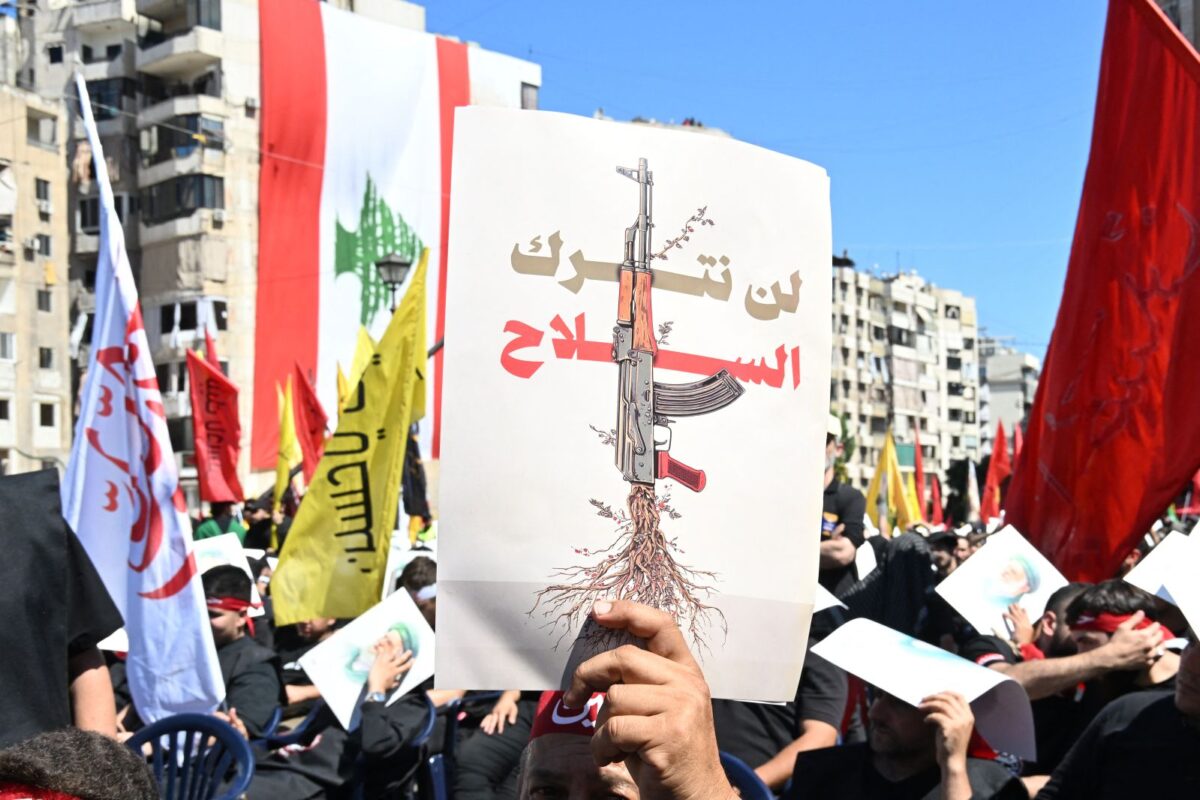
Last week marked the commemoration of Ashura, the tenth of Muharram, when Shi‘a Muslims remember the martyrdom of Imam Hussein, their third imam, who was slain at Karbala alongside his family and loyal companions. It is a foundational moment in Shi‘a Islam—emotionally and theologically—soaked in tragedy and imbued with a spirit of resistance against injustice. Yet, in Lebanon, this annual ritual has been tainted by a troubling contradiction.
For some who claim to love Imam al-Hussein, the act of mourning has become conflated with the defense of Hezbollah’s weapons—an Iranian-supplied arsenal they present not merely as a military tool, but as an inseparable component of Shi‘a identity in Lebanon. Calls for disarmament are reflexively framed as calls for the isolation or persecution of the Shi‘a community itself. This line of reasoning is not only disingenuous—it is dangerous. It fuses political deceit with religious hysteria and, in doing so, insults both the Shi‘a faith and the legacy of al-Hussein.
While followers of other Islamic traditions celebrate their spiritual heritage without linking it to private militias or parallel state structures, one must ask: Why, in parts of Lebanon, has devotion to al-Hussein become tied to the possession of arms and the rejection of the state? Has love for al-Hussein been hijacked to justify a foreign-backed political project?
The essence of Karbala is human and universal. Al-Hussein did not rise up for power or sectarian privilege—he rose to speak truth to tyranny. He resisted not with weapons and military might, but with moral clarity. To turn his memory into a cover for the silence imposed by the gun, for the suppression of state authority, or for the obstruction of justice, is to betray his example. To link Karbala to a modern, expansionist Iranian project is to transform a symbol of moral courage into a tool of domination.
Efforts to sanctify Hezbollah’s arms with religious imagery not only distort Shi‘a theology but demand a return to the core sources of Ja‘fari jurisprudence—away from the ideological innovations of the “neo-Shi‘ites” who equate piety with militarism.
In this year’s commemoration, Hezbollah launched a propaganda campaign designed to give divine legitimacy to its arsenal. It adopted a slogan—”We will never abandon our weapons”—paired with AI-generated images of men carrying babies and rifles, women wielding guns. The optics echo the rhetoric of America’s National Rifle Association: “You’ll pry my gun from my cold, dead hands.” But Lebanon’s constitution does not enshrine the right to bear arms. It vests the monopoly of force in the state and its legitimate institutions.
The oft-repeated formula of “the army, the people, and the resistance” is a constitutional fraud. When weapons wear a sectarian cloak, they violate Lebanon’s founding principle of coexistence. Trapping the Shi‘a community in a permanent state of victimhood to justify illegal arms is not just a falsehood—it is a political crime. Those who insist that Shi‘a can only be protected by Iranian arms reduce a proud and diverse community to the status of a besieged enclave, rather than full citizens in a just and civil state.
The weapons have become a curse—on Lebanon and even on those who cling to it. Like a spoiled child who refuses to return a toy he stole from a classmate—even when scolded by his parents—its holders cling to it defiantly, preaching piety to elders while ignoring the wisdom of their own.
Perhaps they have forgotten the wise words of the late Shitte cleric Sayyid Hani Fahs, who once tried to remind Hezbollah’s ranks, and all those enamored with weapons, of a deeper truth:
“The best part of al-Hussein’s past is what should define our future—our commitment to justice, freedom, and unity. These must be built on tawhid (oneness), which unites without erasing differences. Complex meaning is richer and more enduring than simplistic certainty. If we are to preserve or recover our civilizational role, we must renew what can be renewed, discard what is harmful, and add what is necessary… There is no answer without knowledge, and no knowledge without partnership—without unity. Diversity is a condition of civilization; the fault lies not in multiplicity but in those who turn it into conflict and exclusion.”
Only the state—strong, inclusive, and legitimate—can protect all of Lebanon’s citizens: Shi‘a, Christians, Sunnis, and Druze alike. To honor Hussein is not to raise a rifle in his name—it is to raise his voice. He did not die to bestow sacred status on weapons, but to preserve freedom in the face of tyranny, whether foreign or domestic.
And if the lovers of arms will not heed the wisdom of Sayyid Hani, they should at least accept this self-evident truth: Religion belongs to God. Arms belong to the state—and only the state.
And if they still refuse to listen, perhaps they’ll recall the old saying: “No tree has ever reached its Lord—no matter how tall it grows.”
This article original appeared in Nidaa al-Watan
Makram Rabah is the managing editor at Now Lebanon and an Assistant Professor at the American University of Beirut, Department of History. His book Conflict on Mount Lebanon: The Druze, the Maronites and Collective Memory (Edinburgh University Press) covers collective identities and the Lebanese Civil War. He tweets at @makramrabah







